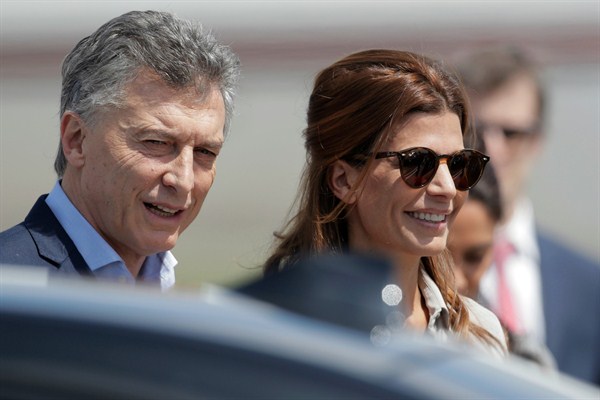Presiding over the Group of 20 seemed like a good idea back in 2016, when Argentina outmaneuvered India for this year’s presidency. The rotating leadership gig was supposed to showcase Argentina’s political and economic transformation after years of international isolation and scandal at home, and offer a chance at global leadership. Instead, largely as a result of jolting policy changes in the United States under President Donald Trump, Argentine President Mauricio Macri landed a burdensome assignment.
So far, the G-20 warm-up meetings ahead of the November Leaders’ Summit in Buenos Aires have not rocked the influential forum, whose members represent 85 percent of global economic activity. But there are low expectations for the November summit, which requires consensus among member states to get anything done. In particular, the Trump administration’s protectionist trade policies have raised fears of ugly clashes in Argentina.
But there is another victim of American obstructionism at the G-20: the global climate change agenda. That is especially unfortunate, given Argentina’s impressive domestic advances on climate policy after Germany’s efforts to prioritize climate change when it held the G-20 presidency last year.

